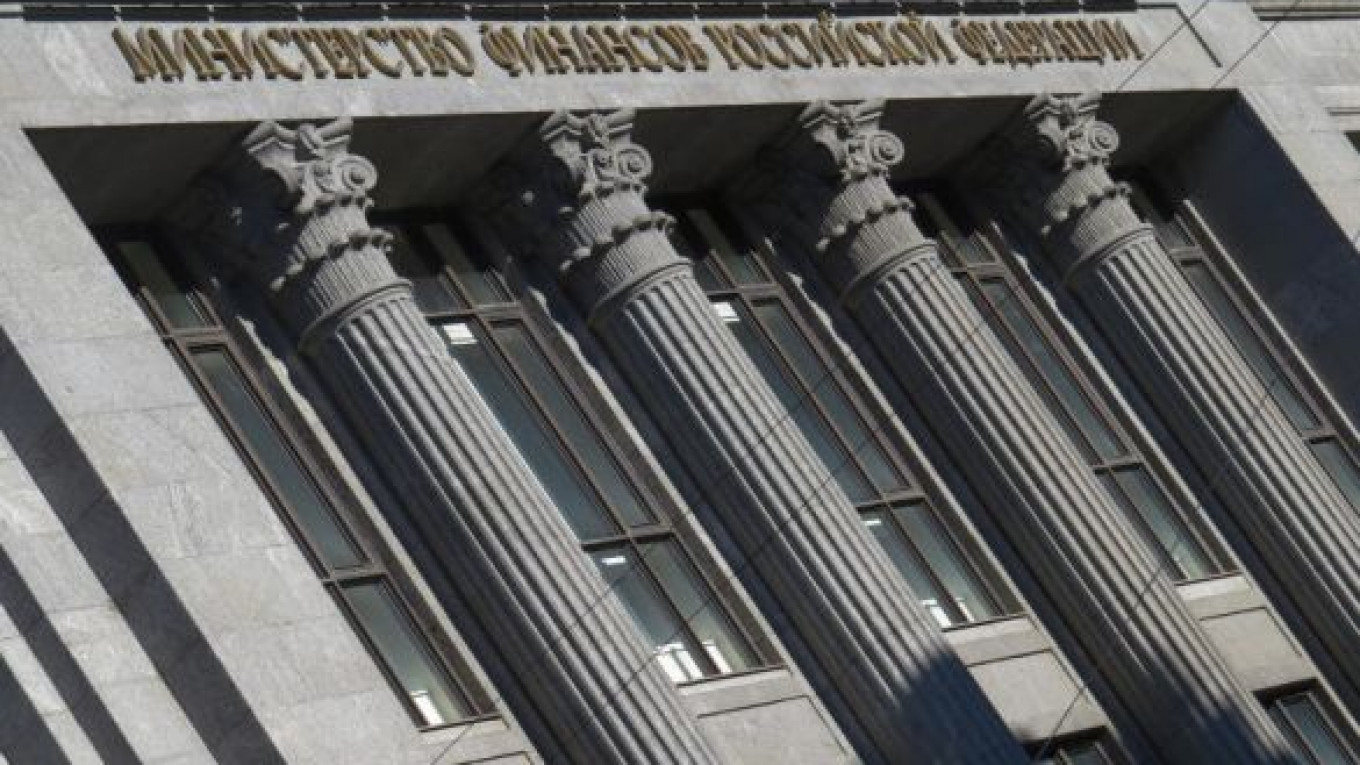According to government predictions, state companies’ spending plans are likely to pull the economy out of stagnation toward the end of the year. Other economists, however, remain skeptical of these forecasts.
Figures for January released last week did not give grounds for optimism, and recent news reports have said that Russia may be headed into a recession.
Government officials remained hopeful despite State Statistics Service data showing that direct investment slumped 7 percent compared to the year before while analysts expected a 1.5 percent growth and retail sales growth slowed to 2.4 percent against 3.8 percent growth in December.
“Unfortunately, the economy continues to stagnate, but we anticipate an end to this stagnation will come in the second or third quarter,” said Deputy Economic Development Minister Andrei Klepach, PRIME Business News Agency reported Friday.
Several economists interviewed by The Moscow Times disagreed with his relatively rosy outlook.
“Judging by the falling levels of investment and production output, we are likely entering a recession,” said Valery Mironov, deputy head of the Higher School of Economics’ Center for Development Institute.
“Usually a local recession lasts for two to three quarters. So in the third quarter we should be talking not about an end of stagnation but about coming out of a recession, which either has already started or will start soon,” Mironov said.
One driver for the reverse trend, Klepach said, will come from state companies like Gazprom, which saw a sharp drop in investment two years ago.
Speaking before investors in Hong Kong, Finance Minister Anton Siluanov echoed the words of his colleague on Friday.
The minister said that although state companies did decrease their investments, this effect was only seen in 2013. “And in 2014, private investments will continue to grow and investments of state companies will show a more positive behavior,” Siluanov said, PRIME reported.
Meanwhile, many state companies investment plans are scheduled to contract and significant investment activity is only evident in the plans of Russian Railways.
According to a plan approved in November, the company will invest 1.2 trillion rubles ($33 billion) until 2016, mainly to improve rail infrastructure in Siberia and the Far East. More than 390 billion rubles will be spent in 2014 and 411 billion rubles in 2015, as compared to the 411 billion rubles in spending approved for last year.
To help the company complete its investment plan, 300 billion rubles will come from state coffers.
But the government is not planning to support two other state-controlled companies which, like Russian Railways, have also seen their prices frozen. Gazprom and Russian Grids’ investment strategies are scheduled to contract.
Gazprom’s approved investment program for this year stands at just more than 800 billion rubles, 22 percent less than it was in 2013.
“How can state companies, Gazprom for instance, invest, if the prices for gas have been frozen? Of course the company has reserves but will not invest them just to show how bad the effect of the tariff freeze was,” Mironov said.
The Economic Development Ministry estimated that the effect of a tariff freeze for Gazprom would result in falling revenues totaling 600 billion rubles over the next three years.
A slimdown also awaits the power company Russian Grids. The company’s investment program, scheduled for approval in March, may decrease to just more than 980 billion rubles, down 21 percent from the 1.2 trillion rubles planned.
But even if investment programs of state companies were to be revised and grow, analysts are still doubtful this move would result in any significant improvement of the general economy.
“Overall, we expect low investment activity and a decrease in consumer consumption growth this year,” said Alexei Vedev, the head of the Gaidar Institute’s Structural Research Center.
If there are investments, they are more likely to be seen in the manufacturing industry, which will benefit from the frozen tariffs on gas, electricity and transportation, Mironov said.
Some growth could come from the private sector but it would require stimulative measures from the government, said Dmitry Plekhanov, a senior analyst at the Institute for Complex Strategic Studies, a Russia-based economic policy think tank.
The government’s positive forecasts are meant to calm down the market and the people, he added. “But we saw that claims made in the beginning of 2013 were very different from the actual results achieved by the year’s end.”
A Message from The Moscow Times:
Dear readers,
We are facing unprecedented challenges. Russia's Prosecutor General's Office has designated The Moscow Times as an "undesirable" organization, criminalizing our work and putting our staff at risk of prosecution. This follows our earlier unjust labeling as a "foreign agent."
These actions are direct attempts to silence independent journalism in Russia. The authorities claim our work "discredits the decisions of the Russian leadership." We see things differently: we strive to provide accurate, unbiased reporting on Russia.
We, the journalists of The Moscow Times, refuse to be silenced. But to continue our work, we need your help.
Your support, no matter how small, makes a world of difference. If you can, please support us monthly starting from just $2. It's quick to set up, and every contribution makes a significant impact.
By supporting The Moscow Times, you're defending open, independent journalism in the face of repression. Thank you for standing with us.
Remind me later.






